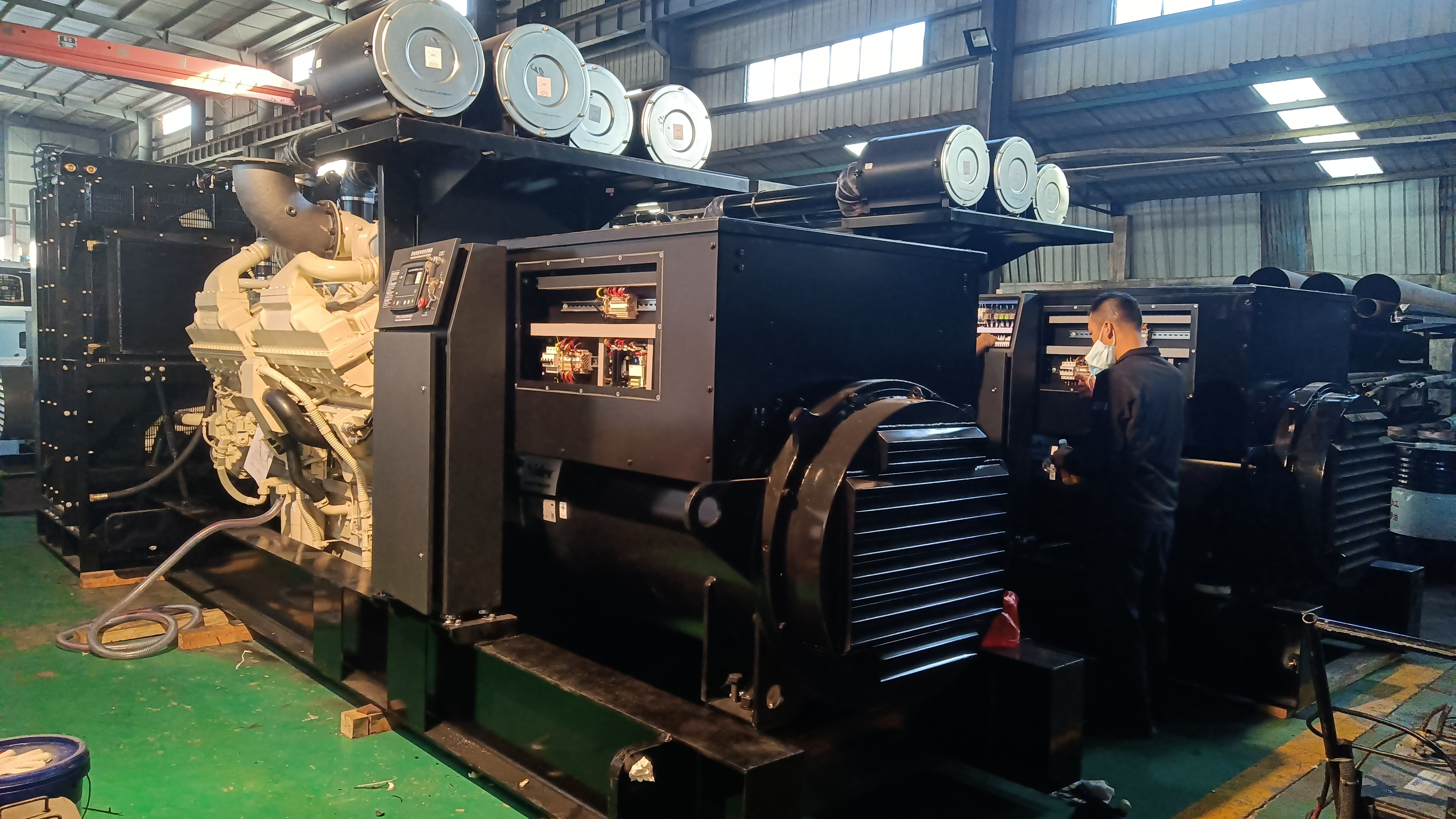Introduction:
In today's modern world, where electricity is an essential aspect of our daily lives, maintaining a stable power supply is of utmost importance. Voltage regulation plays a critical role in ensuring that electrical devices and equipment operate efficiently and safely. One effective solution for voltage regulation is the use of diesel generators. In this article, we will delve into the world of diesel generators and explore their significance in maintaining stable power supply systems.
1. Understanding Voltage Regulation:
Voltage regulation refers to the process of maintaining a steady voltage level within an electrical system. click to read in voltage can be detrimental to the proper functioning of electrical devices, causing issues such as equipment damage, data loss, and even electrical fires. my review here is crucial for various industries, including healthcare, telecommunications, manufacturing, and residential applications.
2. The Role of Diesel Generators in Voltage Regulation:
Diesel generators are widely used for voltage regulation due to their unique capabilities and benefits. These generators provide a reliable and efficient power source, ensuring a stable voltage output. Let us explore the key aspects of diesel generators that make them suitable for voltage regulation:
a) Robust Power Generation: Diesel generators have the ability to produce a significant amount of power, making them suitable for applications that require high voltage levels. https://www.lkpowerplant.com/diesel-generator-vs-petrol-generator/ can handle heavy loads and provide consistent power supply even during peak demand periods.
b) Quick Response Time: Diesel generators have a relatively short startup time, allowing for quick response to sudden power outages or voltage fluctuations. This rapid response ensures minimal downtime and prevents interruptions in critical operations.
c) Voltage Stability: Diesel generators are designed to provide a stable voltage output, regardless of variations in load demand or external factors. This stability is crucial for sensitive equipment and processes that require a consistent power supply to operate effectively.
d) Load Sharing and Parallel Operation: Diesel generators can be synchronized and operated in parallel to meet higher power demands. This feature enables load sharing, where multiple generators work together to ensure a balanced power supply and maintain voltage stability.
3. Components of Diesel Generators:
To understand how diesel generators contribute to voltage regulation, it is essential to familiarize ourselves with their key components. The following are the primary components of a diesel generator:
a) Diesel Engine: The diesel engine is the heart of the generator, responsible for converting fuel into mechanical energy. These engines are known for their durability, efficiency, and ability to generate substantial power output.
b) Alternator: The alternator, also known as the generator head, converts mechanical energy from the diesel engine into electrical energy. It consists of a rotor and stator, which work together to produce a rotating magnetic field, inducing an electric current in the stator windings.
c) Voltage Regulator: The voltage regulator ensures a steady output voltage by adjusting the excitation current supplied to the alternator. It monitors the voltage level and adjusts the field current to maintain the desired output voltage.
d) Control Panel: The control panel houses various instruments and controls that allow operators to monitor and control the generator's performance. It includes indicators for voltage, frequency, oil pressure, temperature, and other essential parameters.
4. Applications of Diesel Generators in Voltage Regulation:
Diesel generators find extensive applications in voltage regulation across various industries. Let's explore some key areas where diesel generators are crucial for maintaining stable power supply:

a) Industrial Sector: Industrial facilities often require a reliable and stable power supply to ensure uninterrupted production processes. Diesel generators play a vital role in providing backup power during utility outages, preventing costly downtime, and ensuring voltage stability.
b) Construction Sites: Construction projects often operate in remote locations where access to the grid is limited. Diesel generators are widely used in such scenarios to power heavy machinery, tools, and temporary lighting, ensuring a consistent voltage supply throughout the construction process.
c) Healthcare Facilities: Hospitals and medical centers rely heavily on stable power supply to operate critical life-support systems, diagnostic equipment, and lighting. Diesel generators serve as backup power sources to ensure uninterrupted healthcare services and protect patient safety.
d) Telecommunications: Telecommunication networks require a stable power supply to maintain uninterrupted communication services. Diesel generators provide backup power during grid failures, ensuring that essential communication infrastructure remains operational.
5. Maintenance and Environmental Considerations:
To ensure optimal performance and longevity of diesel generators, regular maintenance is essential. Some key maintenance tasks include oil and filter changes, fuel system inspections, cooling system maintenance, and periodic load testing. Additionally, complying with environmental regulations is crucial when operating diesel generators. Proper emissions control systems, fuel storage, and disposal practices should be followed to minimize environmental impact.
Conclusion:
Voltage regulation is a critical aspect of maintaining a stable power supply in various industries and applications. Diesel generators offer a reliable and efficient solution for voltage regulation, ensuring consistent power output even during fluctuations in load demand or utility outages. With their robust power generation, quick response time, and ability to maintain voltage stability, diesel generators play a vital role in safeguarding electrical systems and equipment. By understanding the components, applications, maintenance, and environmental considerations associated with diesel generators, we can appreciate their significance in ensuring uninterrupted power supply and voltage regulation.
